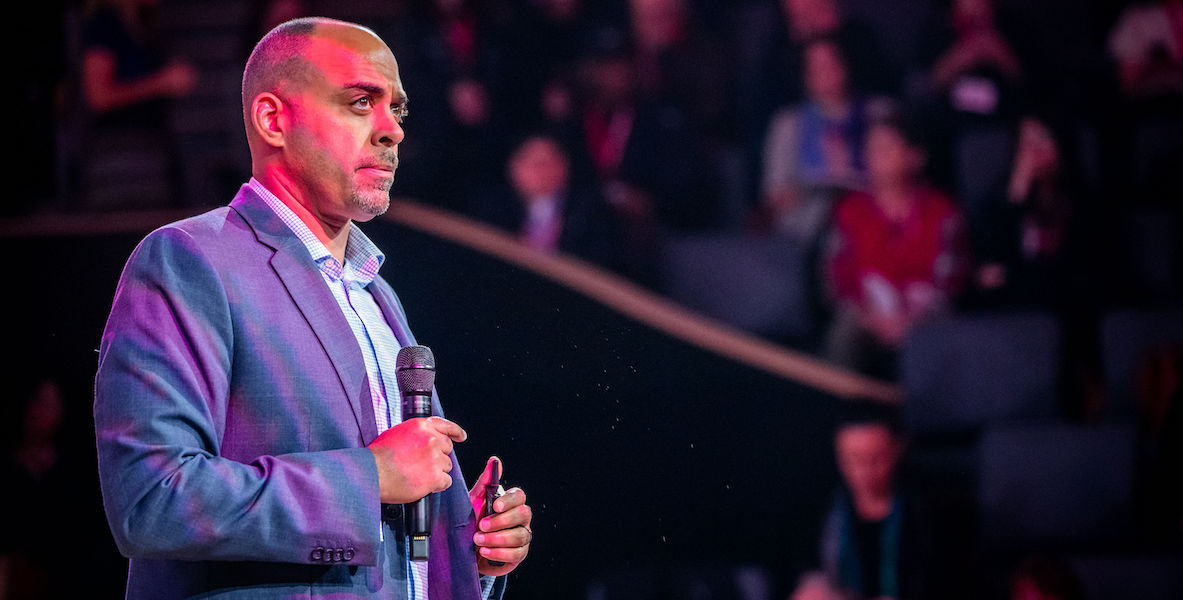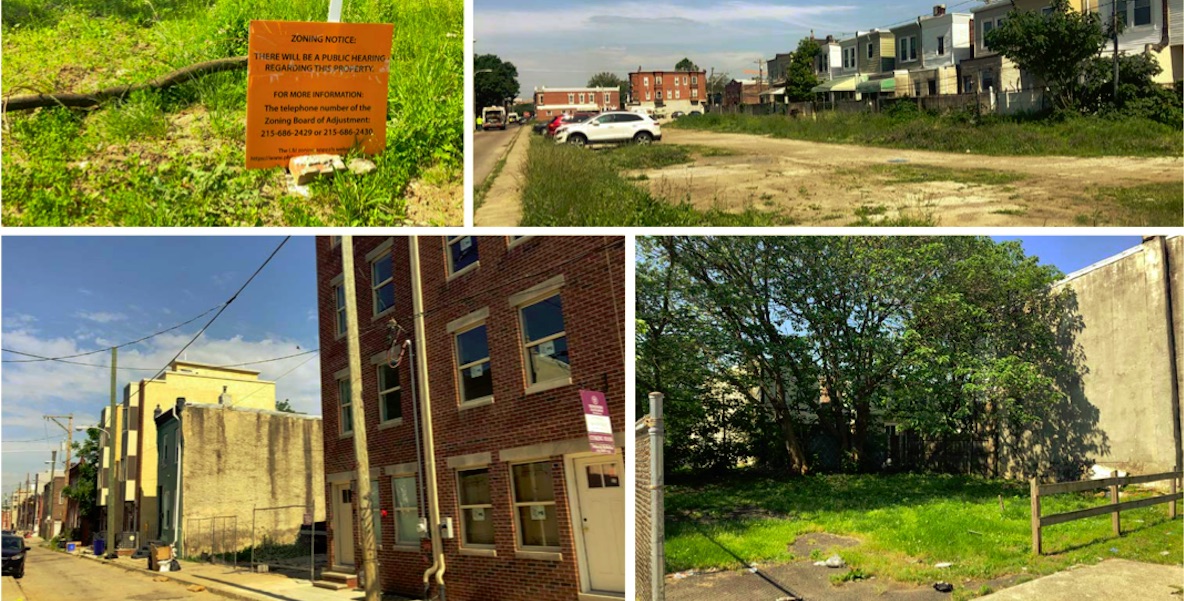Who are the people in your neighborhood?
Sometimes, it’s hard to know. With rapid gentrification and increased social isolation, many of us simply have no idea who lives next door.
A more mysterious question: What do the people in your neighborhood want? And how do they wish the land around them would be used? Which of their needs are going unmet? And how can they be part of solutions?
![]()
Those questions and more drove a deep, months-long exploration led by Women’s Community Revitalization Project (WCRP), the nonprofit that, since 1985, has been building and rehabbing affordable housing throughout Philly.
In 2019, The Citizen awarded the group its first $50,000 Jeremy Nowak Urban Innovation Award to delve into Grays Ferry, for two purposes: to work with the community to make a plan for their neighborhood before outside development took over; and to discover a sizable plot of land where they could build permanently affordable housing.
When WCRP started the project, it was with a sense of urgency: Like neighboring Point Breeze, Grays Ferry is rapidly changing, and the group wanted to get in before it jumped the real estate shark. So over the course of the last eight months, WCRP led a multi-stage project that involved “ground-truthing”—the process of cross-checking city maps of available land with reality; community-listening sessions; neighborhood workshops on topics like understanding the Community Justice Land Trust; meetings with the staff of Councilmember Kenyatta Johnson’s office; and more.
Unfortunately, WCRP did not get the results they’d hoped for. Their findings indicated that they were too late. There simply is not any large enough parcel of contiguous land on which to build the kind of housing WCRP is known for. Because WCRP focuses uniquely on very low-income households, they use low-income tax credits, which require a minimum of 25 units. And land in Grays Ferry is already scarce.
“Folks at the neighborhood level really want to be engaged in this work,” Clark says. “Having their voice and their vision at the table as plans that can impact communities for generations to come is critically important. And people are excited to do it.”
The report WCRP created with Interface Studio did shed light on the changes in Grays Ferry, and what those changes look like in real estate terms: Between 2017 and 2018, at least 25 percent of residential sales in Grays Ferry were to buyers listed as LLCs and other incorporated development entities; this is significant in a community of long-term residents, as the report explained, for increased interest by investors often leads to increased rents and taxes that can be unaffordable.
On top of that, the report suggests that as of 2017, more than half (54 percent) of the renter households in Grays Ferry are already housing-cost burdened—a figure that exceeds the city-wide 43 percent mark; this means that more than 30 percent of these residents’ monthly income is being spent on housing costs, which invariably makes it harder to meet other needs.
And the report showed a demographic shift that may be surprising to those ![]() outside the neighborhood: In Grays Ferry, where half of all households are now renters, the number of white residents decreased by 41 percent, while the number of Asian residents increased by 717 percent—though they still make up only 10 percent of the total overall.
outside the neighborhood: In Grays Ferry, where half of all households are now renters, the number of white residents decreased by 41 percent, while the number of Asian residents increased by 717 percent—though they still make up only 10 percent of the total overall.
WCRP also laid out several community priorities moving forward: preserving affordability over time; supporting existing homeowners who want to remain in their houses by increasing awareness of and access to city services that can help repair buildings, lower tax burdens and prevent foreclosures; holding developers accountable to the existing neighbors through, for example, Community Benefits Agreements; and encouraging ongoing advocacy by a unified coalition of community organizations, specifically Tasker Morris Neighbors Association/ Resident Action Council II, Grays Ferry Civic Association, Tasker Elite, Neighbors in Action, Point Breeze Community Development Coalition, and South Philadelphia H.O.M.E.S.
“I think a lot of time, when you’re looking at land and development, people look around and they either see vacancy, or they see new construction, without a lot of context or background on who owns it and how it got to be there,” says Christi Clark, WCRP’s organizing director.
“We’re not just talking about buildings, we’re talking about homes,” says Clark. “And a home is about more than buildings. It’s about community and it’s about connection.”
Will that amount to preservation, what La Shon A. Walker of California’s FivePoint Holdings called “place-saving” at the Citizen’s Ideas We Should Steal Festival? It’s hard to say. WCRP has a 30-year history of building affordable housing, and advocating for lower-income residents in the neighborhoods where they work. In the spring, they will break ground on 33 permanently affordable townhomes in Point Breeze, and the group says it will continue to work with neighbors in Grays Ferry to hold Councilman Kenyatta Johnson and developers to account for existing community members.
And Clark says the process WCRP used for their work—bringing neighborhood groups from both Point Breeze and Grays Ferry together at least once a month, creating updated, block-by-block maps, meeting with staff from Councilmember Johnson’s office and securing his verbal pledge to provide more affordable housing—has laid the groundwork for other community-minded developers, who are not beholden to low-income tax credit requirements, to create affordable housing in the future.
Independent of WCRP’s work, Philadelphia Land Bank, for example, has already put out two requests for proposals (RFPs) to develop 43 properties for moderate-income and market-rate homeownership units in Grays Ferry.
“Folks at the neighborhood level really want to be engaged in this work,” Clark says. “Having their voice and their vision at the table as plans that can impact communities for generations to come is critically important. And people are excited to do it.”
This kind of community-building, the thoughtfulness to listen to residents—as WCRP did through a 300-person survey and as they plan to continue to do in the future, notably with a project that will center on hearing what youth in the neighborhood want—seems so obvious, yet it rarely happens. So often, real estate is about data and profit—when it should be about people.
“We’re not just talking about buildings, we’re talking about homes,” says Clark. “And a home is about more than buildings. It’s about community and it’s about connection.”
Want more? Check out these related articles:
- How Philly can avoid the housing disaster that plagues San Francisco
- How less home ownership can solve the affordable housing crisis in Philly
- A millennial from Forgotten Bottom realized he had to be the change he wanted to see in his neighborhood. So he jumped all in.




